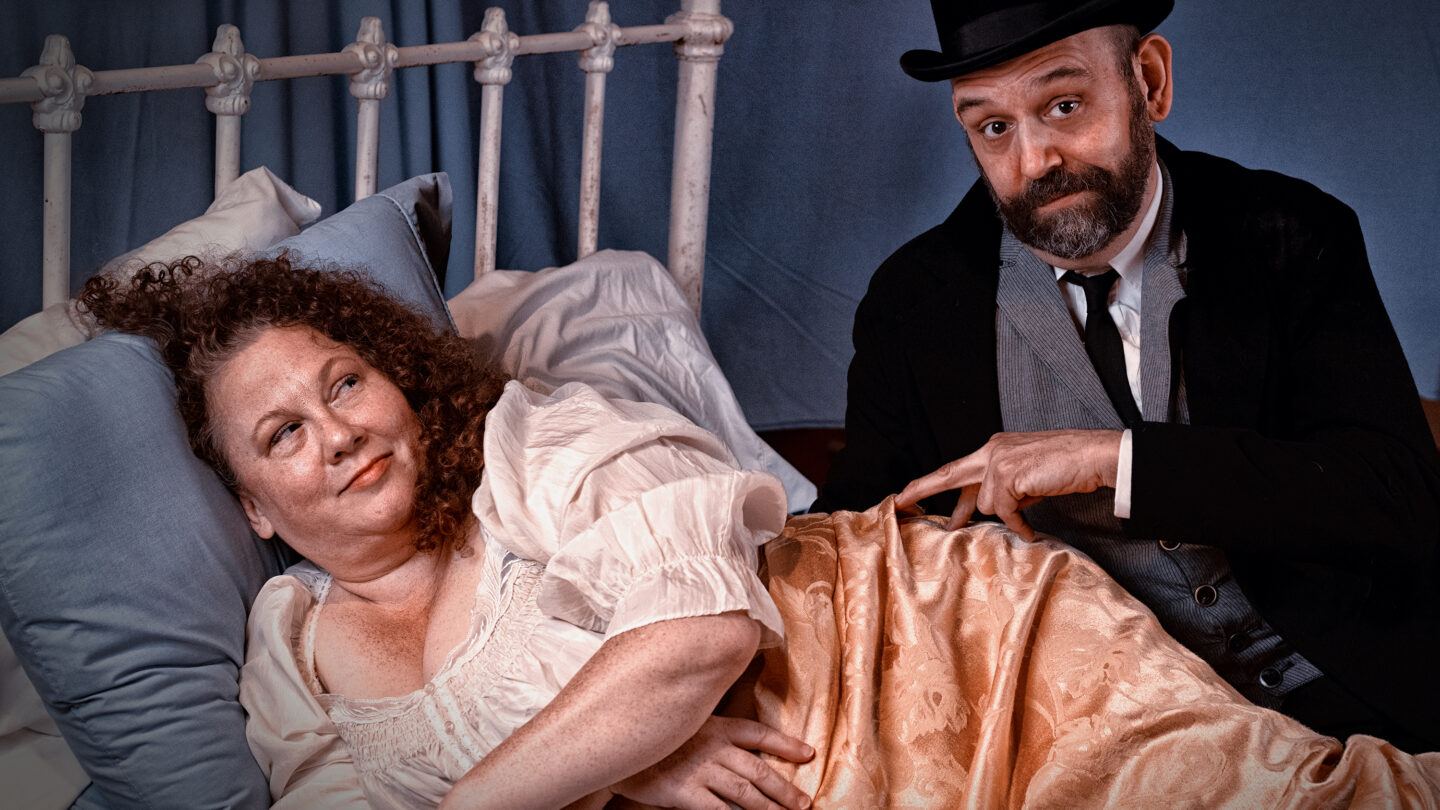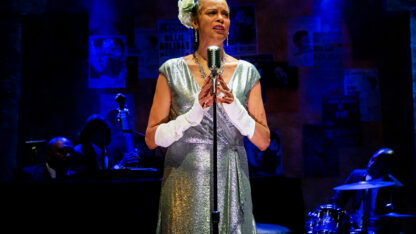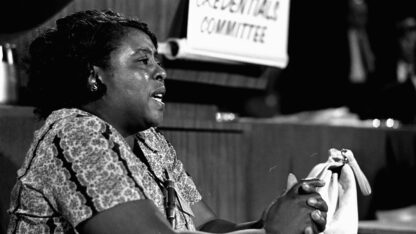Celebrate Bloomsday with Arís Theatre's production of 'Ulysses' at 7 Stages

This year marks a literary milestone, the 100th anniversary of the publication of “Ulysses” by the Irish author James Joyce. The writer T.S.Eliot declared “Ulysses” to be “the most important expression of our time, and from which none of us can escape.” Perhaps you read the novel as part of a class or have encountered some of the many references to it. The famous story about life, death, love and sex takes place on one day in the life of Leopold Bloom, wandering around Dublin. Arís Theatre presents an adaptation of “Ulysses” by the distinguished author and playwright Dermot Bolger in its North American premiere on June 16 at 7 Stages Theater. Bolger joined “City Lights” host Lois Reitzes via Zoom and the director, Clinton Thornton.
Interview highlights:
A reluctant but ingenious adaptation of a sprawling novel:
“James Joyce’s masterpiece is 265,000 words,” said Bolger. “It actually follows this encyclopedic overview of Dublin in one day, and also, it ends with Molly, who is Bloom’s wife, having this extraordinary soliloquy, where she speaks for hours on end about her life. And so that’s a play in itself, you know? And so I said to Greg [Duran, artistic director of the Royal Shakespeare Company], ‘No, I won’t do it.’ But we had a bottle of wine at lunch, which is really unwise if you’re a playwright.”
Bolger continued, “As I was explaining to him why I would never adapt ‘Ulysses’ for the stage, I was explaining how you couldn’t adapt it for the stage. And the only way you could adapt it was if you began with Molly’s soliloquy at the very end, and you had Molly on stage the whole time … and then if you had Leopold Bloom in bed beside Molly, dreaming back to his day, and with the logic of a dream, he could move from scene to scene in that way that dreams move, very, very quickly. And I began to explain this on a napkin, and somehow when I left the restaurant and Greg went back to London, I discovered I had signed the contract to adapt it.”
Exposing a soft underbelly of the daunting “Ulysses”:
“There’s intimidation around the book because it has such a mystique around it,” said Bolger. “My starting point was Molly. Nora [Barnacle], who was Joyce’s wife, who felt that he should have stuck to singing, that he was a much better singer than an actual writer; Nora was a very practical woman. And ‘Ulysses’ is a celebration of today when Joyce met Nora, so that’s the day that he wanted to capture forever. But she used to complain that Joyce kept her awake, laughing at night as he wrote it.”
“As I began to read the book, I began to see that he got under the skin of people and their prejudices and views and that the book is actually very, very funny. And the book is also very, very human,” Bolger went on. “And so it was a case of homing in on those human aspects of the book that fascinated me, and those characters that fascinated me, and hoping, as you always hope as a playwright, if you focus on the things that interest you as a human being, that they will interest an audience as well.”
On the play’s dreamlike connection to its omnipresent observer, Molly:
“It’s an interesting challenge because she’s there in the bed all the time, and all of this stuff happens all around,” said Thornton. “We’ve got Leo, who is actually in a hotel dining room, reacting to things that are actually happening on the bed next to him, but not in the same room that he’s actually in. So there’s this wonderful and challenging situation of … not only staging the actual scenes that need to happen, but looking at the connections of the marriage at all points throughout the play, because every single thing relates back to this couple’s marriage, and this woman’s life and thought process, and Leo’s whole inner monologue that he’s working through throughout the day.”
Surprising elements of puppetry:
“Dermot’s adaptation gives you the license — you can use them, or you can not use them; he leaves it pretty open,” said Thornton. “So I used puppets when absolutely necessary, but I came up with some interesting other ways to do some of the other suggested puppetry moments. We do have some shadow work happening on a site that’s at the back of the stage. We have some other things that you might see on mannequins or things like that that are utilized in a puppetry fashion. We actually puppeteer other human beings at one point, I believe. So I tried to use authentic puppetry when needed, but I also tried to expand what that meant.”
“Ulysses” premieres on June 16 at 7 Stages, continuing through June 26. Tickets and more information are available at www.aristheatre.org.








